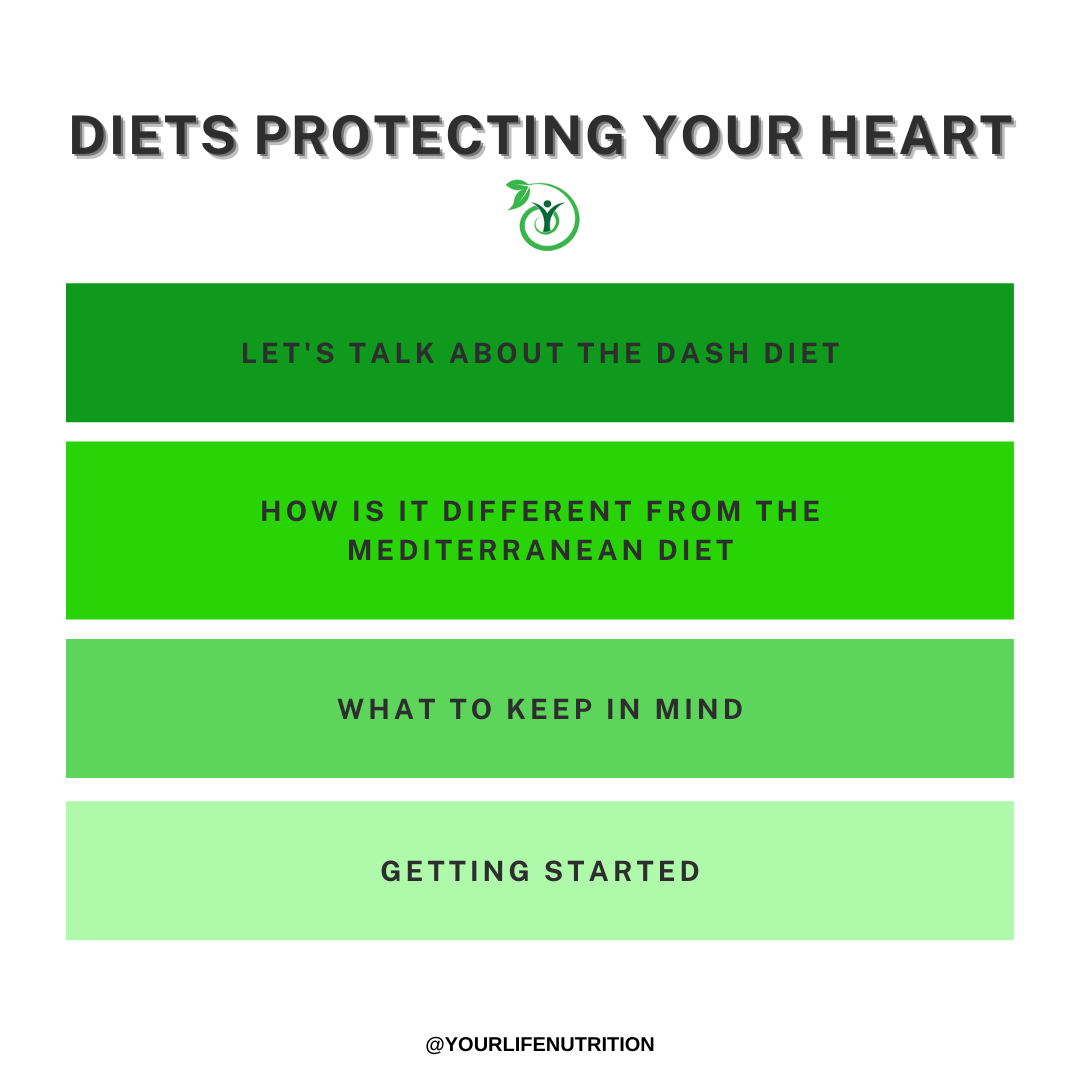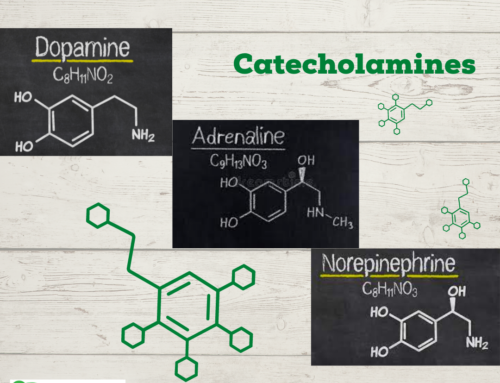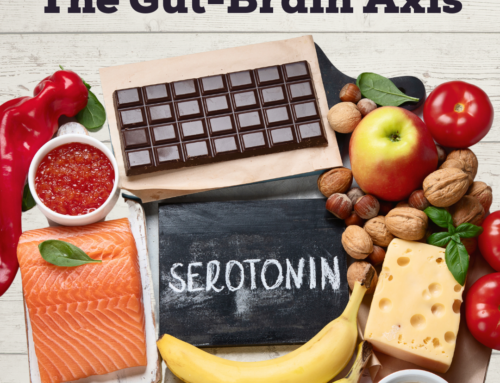February is here, which is also National Heart Month! So let’s take this opportunity to discuss diets that impact our heart. Among both men and women, heart disease is the leading cause of death in the U.S. (1). Heart disease may develop if you have personal or family history of high blood pressure, high cholesterol, diabetes, are overweight or obese, smoke, are older in age, and if you do not eat a balanced diet (1). You may have already had a conversation with your doctor about your heart health, but it is never too late to adjust your diet to keep your heart healthy and strong. The diets we most often recommend promoting heart heath include the DASH diet and the Mediterranean diet.
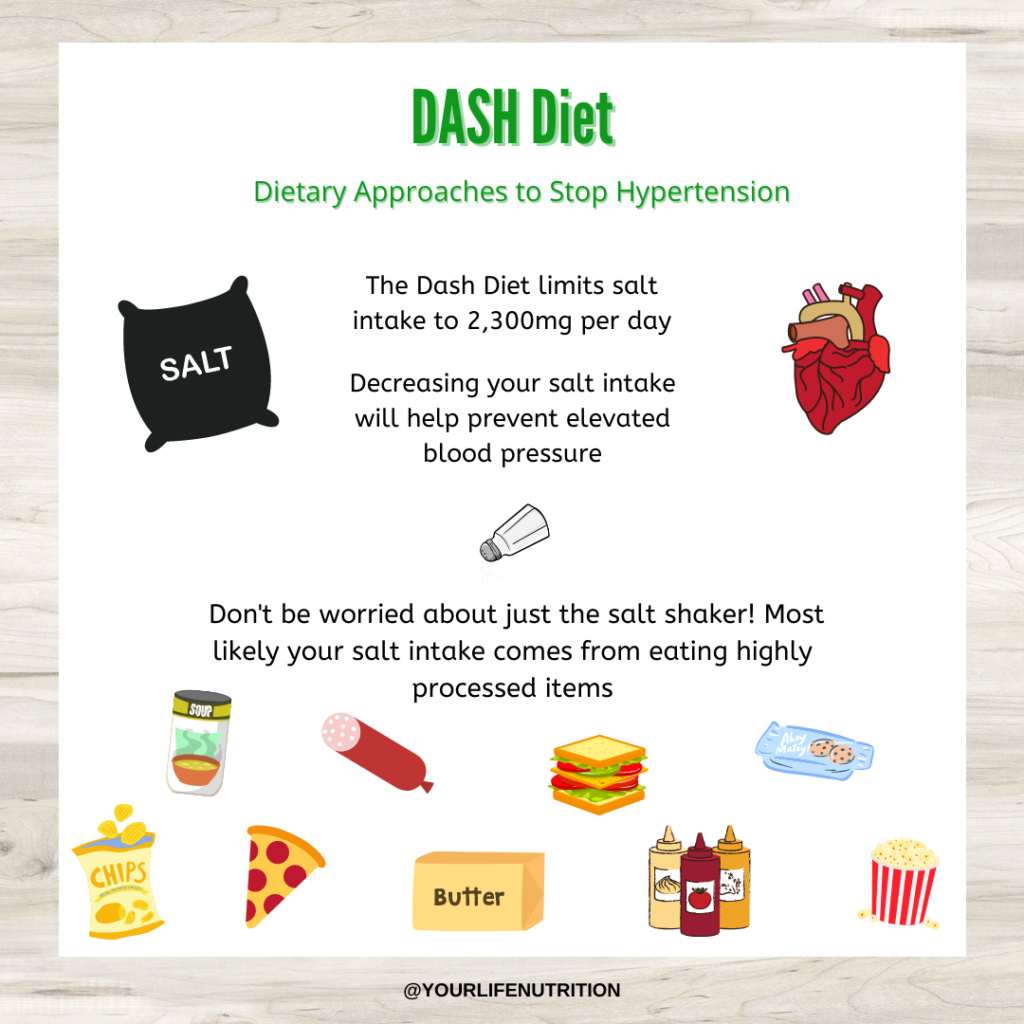
DASH stands for Dietary Approaches to Stop Hypertension (1). There is quite a lot of sodium (aka salt) and fats in the typical American diet. The first component of the DASH diet is limiting sodium intake to 2,300mg per day (1). Reducing your sodium intake is important, because this is what raises the pressure in your body causing the heart to work harder than it should, in short terms it’s raising your blood pressure (1). Your doctor may even suggest to further reduce your sodium intake to 1,500mg per day in more extreme cases (1). Typically, salt added to food while cooking or from the saltshaker just before eating is not the problem. A high sodium intake is typically due to a high intake of processed foods. Processed foods are anything that is altered from its natural state. Think of frozen pot roast TV dinner vs a homemade pot roast or buying microwave buttered popcorn vs popping kernels on the stovetop and adding your own butter or flavorings. Whole foods, closest to their natural state, are going to be the best items for you and will not have as high of amounts of sodium added to them. Salt acts as a preservative, so it can be added to the most unlikely of foods. While shopping or preparing foods, review food labels and adjust for your portion sizes to see how much sodium you are consuming, or choose options labeled as “reduced sodium,” “low salt,” or “no added salt.”
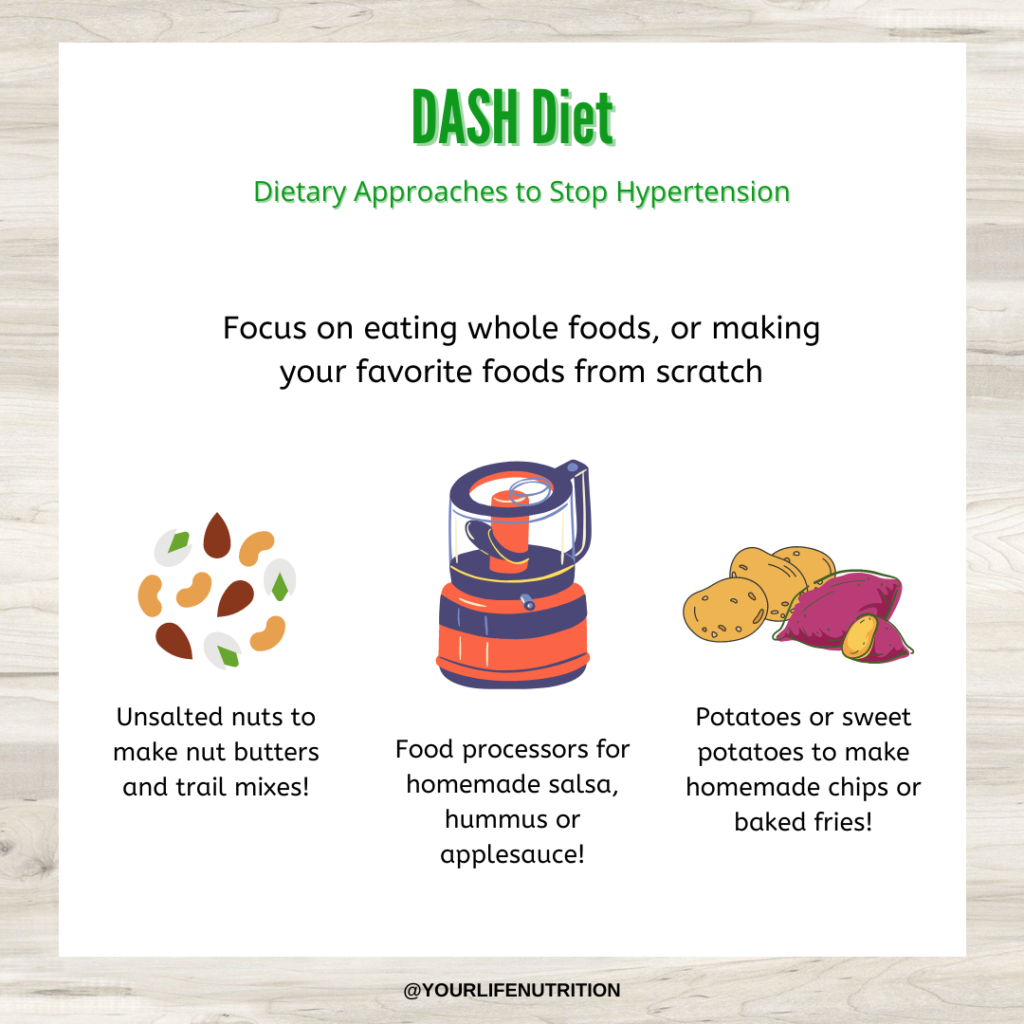
The other component of the DASH diet includes eating a variety of fruits, vegetables, whole grains, lean meats and fish, beans, nuts and seeds, and choosing heart healthy oils (like olive oil or avocado oil) (1). This diet also limits the amount of processed high fat meats, full-fat dairy products, sugar-sweetened beverages, and sweets consumed (1). If animal meats and dairy products are consumed, it is important to research where the animals come from, and what they are eating. Items labeled as “grass-fed” contain more healthy fats (omega-3 and omega-6) compared to standard red meat and dairy products due to their diets (2). Standard red meat products and animal dairy products are from animals typically fed a diet consisting of mostly grains, which does not contribute to the healthy fats available to humans during consumption (2). By choosing items containing healthier fats, less saturated fat (fats from animal sources) and trans fats (fats in highly processed sweets or desserts) are consumed (1). These fats cling to the walls in your arteries, raising your cholesterol levels (1).

The other heart healthy diet is the Mediterranean diet and is the most recommended diet to improve heart health. This is actually not exactly a “diet” but more of a lifestyle change, which we love as RDs. Food wise, the Mediterranean diet encourages foods in frequencies. Every meal be based on the consumption of fruits, vegetables, whole grains, heart healthy oils, beans, nuts, legumes, seeds, and herbs and spices (3). Foods encouraged often are fish and seafood, while poultry, eggs, cheeses, and yogurt are recommended moderately (3). Red meats and sweets are recommended in limited frequencies (3). For beverages, water is the main drink in this diet, but red wine is alright in moderation (one 4oz glass for women, up to two 4oz glasses for men) (3). By choosing more plant-based options, you’ll be taking steps to improve cholesterol levels, just like the DASH diet.

The Mediterranean diet goes beyond food, by encouraging meals and the act of eating to be enjoyed, or even celebrated with family and friends (3). Physical activity is also incorporated into this diet, three to five days per week ranging between moderate to vigorous (such as yoga, swimming, cycling, in combination with strength training) (3). All three of these components, food, celebration, and exercise, make up the Mediterranean diet.

Interestingly, there is a hybrid of both these diets known as the MIND diet. Given the name MIND, this diet focuses on improving brain health, but also has characteristics to improve heart health as well. This diet emphasizes a plant-based, limited processed style of eating, primarily focusing on berry and leafy green vegetable consumption (4). This diet also encourages limited amounts of animal products, such as milk or butter, and fried foods (4). Studies have suggested that foods in the MIND diet are shown to be protective against developing cognitive diseases, such as Alzheimer’s Disease (4). The Mediterranean diet and DASH diet also encourage items that are protective to your brain, but the MIND diet is the more optimal choice, while also protecting your heart.

Any of these diets, or a combination of all three could be incorporated into your life to become a healthier version of yourself. A quick conversation with your doctor and registered dietitian can help you decide if these are appropriate for you, and how to get started. Ultimately, you are not going to follow something you do not like. An RD can help you determine the best items to continue eating and find new strategies to make this transition easier for you. Just keep in mind that this is a transition, changing your diet patterns overnight may not be easy. The small steps you make will become habits in time.
References:
- National Heart, Lung, and Blood Institute. Heart Healthy Living. The Nhilb Website. https://www.nhlbi.nih.gov/health-topics/heart-healthy-living. Accessed February 1, 2022.
- American Grassfed. Grassfed is a Healthy Choice. AmericanGrassfed Website. https://www.americangrassfed.org/grass-fed-consumers/. Accessed February 7, 2022.
- Mahan LK, Raymond JL. Krause’s Food & The Nutrition Care Process. 14th ed. St. Louis, MO: Elsevier; 2017.
- Morris MC, Tangney CC, Wang Y et al. MIND diet associated with reduced incidence of Alzheimer’s Disease. Alzheimers Dement. 2015;11(9):1007–1014.
Post Written and Created by: Your Life Nutrition Intern, Megan McCormick – Dietetic Intern at the Louis Stokes Veteran Affairs Medical Center and Graduate Student of Case Western Reserve University, Cleveland, OH


